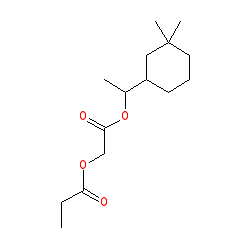


Omeprazole is a highly effective inhibitor of gastric acid secretion used in the therapy of stomach ulcers, dyspepsia, peptic ulcer disease , gastroesophageal reflux disease and Zollinger-Ellison syndrome. The drug inhibits the H(+)-K(+)-ATPase (H(+)-K(+)-exchanging ATPase) in the proton pump of Gastric Parietal Cells. Omeprazole is one of the most widely prescribed drugs internationally and is available over the counter in some countries.



Omeprazole is a highly effective inhibitor of gastric acid secretion used in the therapy of stomach ulcers, dyspepsia, peptic ulcer disease , gastroesophageal reflux disease and Zollinger-Ellison syndrome. The drug inhibits the H(+)-K(+)-ATPase (H(+)-K(+)-exchanging ATPase) in the proton pump of Gastric Parietal Cells. Omeprazole is one of the most widely prescribed drugs internationally and is available over the counter in some countries.

.3d8f8f41.svg)
Pharmaceutical
.3556d45a.svg)

Pharmaceutical Actives & Precursors


Active Pharmaceutical Ingredients (APIs)
Included in Quote
Included in Quote
Included in Quote
Included in Quote
.7767eb0f.png)

Chemical Properties & Specifications
Oral: Omeprazole is commonly administered in tablet and capsule forms, providing an easy and convenient way for patients to take the medication. Injectable: In severe cases, intravenous (IV) formulations of Omeprazole are available for rapid acid suppression in critical care settings.
Gastrointestinal Care: Omeprazole is used to treat gastroesophageal reflux disease (GERD), peptic ulcers, and Zollinger-Ellison syndrome, conditions involving excessive stomach acid production. Acid-related Disorders: It helps provide relief from heartburn and acid reflux, commonly associated with acid-related gastrointestinal conditions.
Ulcer Prevention: Omeprazole is prescribed as a prophylactic treatment to prevent gastric ulcers in patients taking NSAIDs or undergoing long-term steroid therapy, both of which increase the risk of ulcers.
Pediatric Applications: Special formulations of Omeprazole are available for pediatric use to treat acid-related disorders in children, ensuring safe and effective dosage for younger patients.
Omeprazole is a proton-pump inhibitor (PPI) used to treat conditions like gastroesophageal reflux disease (GERD), peptic ulcer disease, and Zollinger-Ellison syndrome. It works by reducing the amount of acid produced in the stomach.
Omeprazole is typically taken orally before meals. It's important to follow your healthcare provider's instructions regarding dosage and duration of treatment.
Common side effects may include headache, nausea, vomiting, diarrhea, and abdominal pain. If you experience severe or persistent symptoms, consult your healthcare provider.
Yes, Omeprazole can interact with certain medications, including clopidogrel and some antifungal drugs. It's important to inform your healthcare provider about all medications and supplements you're taking.
Long-term use of Omeprazole may be associated with risks such as vitamin B12 deficiency, bone fractures, and kidney issues. Discuss with your healthcare provider to determine the appropriate duration of treatment.

CAS No. : 71878-19-8
Category : Light Stabilizers
Sub-Category : Polymeric Hindered Amine Light Stabilizer (HALS)
Description: UV Stabilizer 944 is a polymeric hindered amine light stabilizer (HALS) known for its high molecular...

CAS No. : 25265-71-8
Category : Fragrance Ingredients
Description: Dipropylene Glycol is a clear, low-odor, low-volatility liquid glycol widely used as a solvent, carr...

CAS No. : 236391-76-7
Category : Fragrance Ingredients
Sub-Category : Musk Fragrance
Description: Romandolide (Sciolide) is a synthetic musk fragrance compound known for its soft, fruity, clean, pow...

CAS No. : 13463-67-7
Category : Pigments & Colorants
Sub-Category : Inorganic Pigments
Description: Titanium Dioxide ATR-312 is a high-performance, versatile inorganic pigment known for its exceptiona...

CAS No. : 138261-41-3
Category : Crop Protection & Pest Control
Sub-Category : Insecticides
Description: Imidacloprid is a systemic insecticide belonging to the chloronicotinyl class, effective against a b...